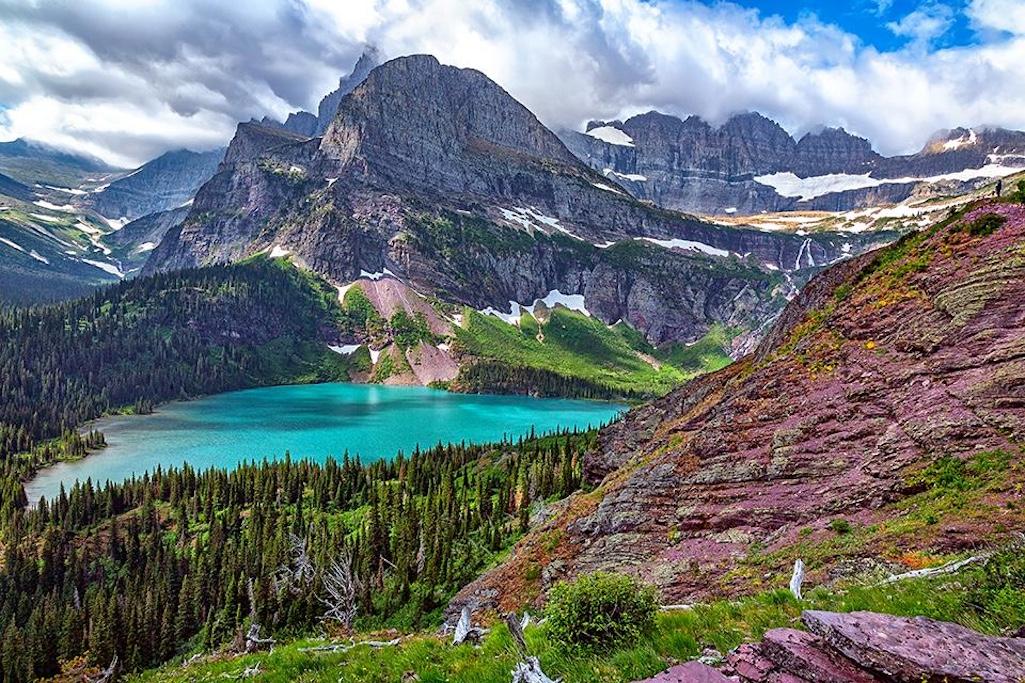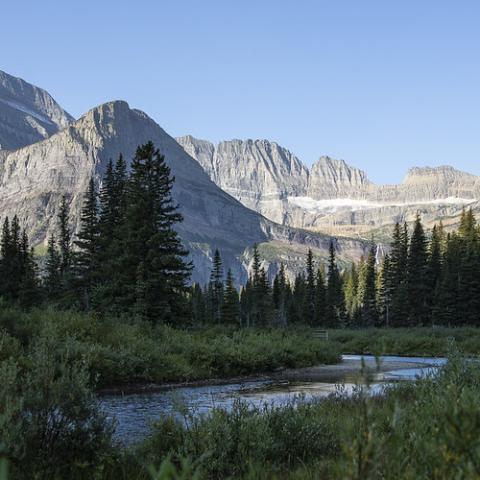
Nearly $2 million is heading to Glacier National Park for projects revolving around, bison, whitebark pines, and climate change impacts/Rebecca Latson file
Work at Glacier National Park in Montana to inventory cultural resources impacted by climate change, work to protect and restore whitebark pines, and to advance the return of bison is being funded with nearly $2 million through the Inflation Reduction Act.
Park staff are continuing to support the Blackfeet-led vision to establish a free-ranging bison herd in northwest Montana. The herd is expected to roam freely onto National Park Service lands. Funding in the amount of $1.5 million of the total will help with coordinating landscape level ecosystem function and connectivity studies, gain a better understanding of how ungulates currently on the landscape (elk and deer) utilize the forage and habitat in the absence of bison, and attempt to obtain a population estimate for these populations through pellet analysis. The Park Service is also assessing infrastructure needs and placement to support visitor use, enjoyment, and safety.
Glacier was also awarded $200,514 as part of a multi-park project to inventory cultural resources in the Intermountain West high-elevation areas impacted by climate change. Other parks awarded additional funding include Yellowstone and Grand Teton.
More than 11,000 years of human occupation and Native American cultural heritage have been documented in Glacier National Park. These resources are experiencing loss through climate change driven impacts such as wildfire and melting ice. The Park Service plans to target the most critically affected and threatened non-renewable cultural resources (such as melted ice-revealed organic materials or eroded cut banks impacting ancient campsites) through an approach that studies climate signals (e.g., frequency of wildland fires, changing weather patterns, etc.) and their impacts to cultural resources within high alpine landscapes and stable (non-moving) ice patches. Two areas of research include sites associated with melting stable ice, and sites on high elevation landforms in non-ice context (e.g., mountain passes and peaks.)
Finally, Glacier received $270,000 to restore threatened whitebark pine and implement the National Whitebark Pine Restoration Strategy. This is also a multi-park project that includes additional funding awarded to Yosemite, Sequoia, Kings Canyon, Olympic, Mount Rainer, North Cascades, Grand Teton, and Yellowstone national parks, totaling $750,000. The project includes working with partners and tribes to plant blister rust resistant seed and seedlings, identify rust resistant trees, monitor seedling survival, and identify climate refugia. The project builds on 20 years of work at Glacier National Park and within the Greater Yellowstone Ecosystem.
Glacier National Park’s climate related projects are part of an overall $195 million investment from the Inflation Reduction Act announced last week to prepare parks across the country to be resilient to climate change. These investments are incredibly timely, as healthy ecosystems, wildlife and native plant habitats, and cultural resources are threatened by climate change and many other environmental challenges.
“Glacier is on a lot of people’s minds when thinking about the impacts of a changing climate,” said Glacier Superintendent Dave Roemer. “These projects will help us prepare, restore, and preserve key aspects of the park that make Glacier special. What ties these efforts together is the development and use of high-quality information to inform management, and the coordination of these efforts with the Blackfeet Nation and the Confederated Salish and Kootenai Tribes.”




 Support Essential Coverage of Essential Places
Support Essential Coverage of Essential Places






